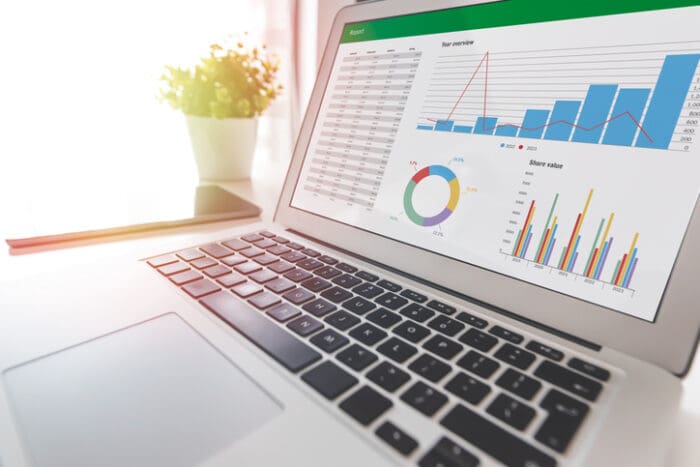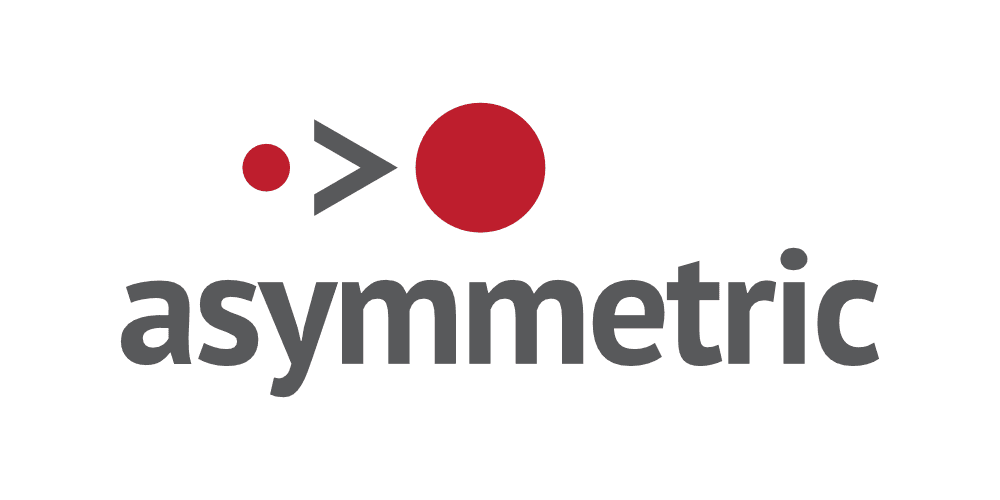In an era of constant digital acceleration and economic uncertainty, marketing leaders are under increasing pressure to do more with less while delivering measurable growth. The just-released Nielsen 2025 Annual Marketing Report provides a powerful lens into how marketing budgets are shifting, which strategies are paying off, and where the most forward-thinking companies are placing their bets.
In this deep dive, we’ll unpack the key findings of the Nielsen report and blend them with insights from other top-tier industry sources to give you a comprehensive and practical view of how to shape your marketing strategy in 2025. Understanding how to create and develop clear marketing budget outlines is essential for making informed, strategic decisions that maximize ROI.
Executive Summary
Marketers today are balancing a tightrope between innovation and efficiency. According to Nielsen’s 2025 global survey of over 1,400 marketing professionals:
- 72% of marketers expect their budgets to increase, despite economic headwinds.
- Measuring ROI remains the #1 challenge, as businesses struggle to connect spend with outcomes.
- Digital media continues to dominate, but traditional media is staging a strategic comeback in some verticals.
- Only 38% of marketers feel confident in their media spend decisions, pointing to a gap in measurement capabilities.
These findings mirror broader industry trends. Gartner’s 2024 CMO Spend Survey reported that the average company's spend on marketing budgets fell to 7.7% of overall revenue, down from 9.1% the year prior. Yet companies that prioritize adaptability, data, and customer-centric strategies are pulling ahead. Optimizing marketing spending is crucial for staying competitive in a rapidly evolving landscape.
Why Marketing Budgets Matter More Than Ever
In 2025, the stakes for marketing spending have never been higher. As digital channels multiply and competition intensifies, how businesses allocate their marketing budgets can make or break their market position. A well-structured marketing budget is more than just a financial outline—it’s a strategic tool that fuels growth, drives customer acquisition, and builds brand awareness in a crowded landscape.
Smart businesses recognize that every dollar spent on marketing initiatives invests in future revenue and long-term sustainability. With customer acquisition costs rising and the customer journey becoming more complex, marketing budgets must be carefully aligned with business objectives and marketing goals. Underinvesting in marketing efforts can lead to missed opportunities, while overspending on the wrong channels can drain resources without delivering positive ROI.
Today’s chief marketing officers are expected to justify every aspect of their marketing spend, using analytics tools and real-time data to optimize budget allocation decisions. This focus on accountability ensures that marketing dollars are directed toward high-performing marketing activities rather than excess and unnecessary costs. In short, a strategic marketing budget is the foundation for marketing success in 2025, empowering businesses to outpace competitors, adapt to market shifts, and achieve sustainable growth.

How to Build a Digital Marketing Budget 2025
Creating a digital marketing budget in 2025 requires a blend of strategic foresight and data-driven decision-making. Start by defining your business goals and marketing objectives—increasing brand visibility, generating new customers, or improving customer retention. Next, conduct thorough market research to understand your target audience and identify the most effective marketing channels for reaching them.
Break down your digital marketing budget into key components: paid advertising campaigns (including social media ads, paid search, and display advertising), content marketing (such as blog posts, video marketing, and influencer marketing), social media marketing, website development, analytics tools (like Google Analytics), and ongoing content creation. Don’t forget to factor in customer acquisition costs and the resources needed for campaign management and optimization.
Allocate your marketing spend based on expected ROI and past marketing performance, using analytics to track actual spending versus planned budget. Prioritize channels that deliver measurable results and support your overall marketing strategy. Regularly review your marketing budget breakdown to identify areas for improvement, eliminate excess and unnecessary costs, and reallocate funds to high-performing marketing initiatives. By taking a disciplined, data-driven approach, you’ll ensure your digital marketing budget delivers maximum impact and supports your business’s sustainable growth.
Key Marketing Budget Benchmarks for 2025
Let’s start with the numbers.
Average Marketing Budget as a % of Revenue
A typical marketing budget varies significantly by industry, with different sectors allocating resources across digital marketing, traditional marketing, events, and research according to their unique needs and goals. For example:
- B2B Services: 6.3%
- Consumer Goods: 18.1%
- Retail: 12.0%
- Healthcare/Pharma: 10.8%
- Tech/SaaS: 8.7%
- Education: 14.6%
- Financial Services: 11.2%
(Source: HubSpot, Gartner)
These benchmarks are helpful but should be seen as directional, not definitive. What matters more than how much you spend is how effectively you invest. A marketing budget based on your business goals and expected ROI is more effective than relying solely on industry averages. The best-performing companies align spending with performance metrics and business goals, not blindly chasing trends.

Top Challenges Marketers Face in 2025
Nielsen’s report highlights several challenges that define the 2025 marketing landscape: Marketing remains a resource-intensive endeavor. Managing marketing expenses and controlling marketing costs are ongoing challenges for marketers, requiring careful budgeting and strategic allocation to maximize ROI and drive business growth.
a. Proving ROI
Over 65% of respondents say demonstrating ROI is their biggest hurdle. This is especially acute in industries where buying cycles are long or customer journeys are non-linear.
b. Audience Fragmentation
With consumers spread across more platforms than ever—social media, podcasts, streaming TV, short-form video—reaching them consistently has become a resource-intensive endeavor.
c. In-House vs. Agency Capabilities
Many companies struggle to build internal capabilities while managing increasingly complex agency partnerships.
d. Data Overload
While data is abundant, useful insights are still rare. Less than half of marketers feel they have the tools needed to make sense of performance data in a way that informs future decisions.
Channel Priorities: Where the Money Is Going
Top Channels by Budget Allocation in 2025
| Channel | % of Budget | YOY Change |
|---|---|---|
| Social Media Ads | 23% | +4% |
| Paid Search | 17% | +1% |
| Video Ads (incl. OTT) | 14% | +2% |
| Display Advertising | 10% | — |
| Influencer Marketing | 8% | +3% |
| Traditional TV/Radio | 6% | -2% |
| Experiential/Events | 4% | -1% |
| Direct Mail | 3% | — |
(Source: Nielsen Annual Marketing Report 2025)
“While marketers lean into digital, traditional media isn’t dead—it’s being reborn through integration and personalization,” says Jamie Moldafsky, Chief Marketing and Communications Officer at Nielsen.
Influencer Marketing and Creators
The rise of micro and nano-influencers has changed the game for consumer brands. Their perceived authenticity often outperforms high-budget campaigns in ROI, especially in lifestyle, beauty, and wellness categories.
Paid Search & Performance Marketing
Even as costs-per-click increase, paid search continues to deliver. The best marketers segment campaigns by buyer intent and optimize for mid-funnel and long-tail terms, not just top-of-funnel visibility.
Martech and Measurement: The Push for Smarter Tools
If 2024 was the year of AI experimentation, 2025 is the year of AI integration. Marketing investments in martech and analytics are essential for building an effective marketing strategy in 2025, ensuring that resources are allocated wisely and results are measurable.
Martech Stack Trends
- 19% of the average marketing budget is now spent on martech.
- Top priorities include AI-driven analytics, attribution modeling, CRM optimization, and customer data platforms (CDPs).
(Source: The CMO Survey, Fall 2024)
Measurement Gaps Persist
Only 38% of marketers surveyed by Nielsen feel “very confident” in measuring the ROI of their media spend. This is down from 44% the year before, indicating a growing awareness of how much opportunity is left on the table.
“The marketing world is swimming in data—but very few are truly data-driven,” notes Christine Moorman, founder of The CMO Survey.
Regional and Industry Variations
Marketing is never one-size-fits-all. Small businesses and small business owners face unique challenges in marketing budget allocation, with strategies often varying significantly depending on their region and industry. Nielsen reports substantial variation by region and industry:
Regional Highlights
- North America leads in programmatic ad spend and martech adoption.
- Europe shows higher confidence in regulatory compliance and sustainability messaging.
- Asia-Pacific markets are rapidly accelerating in mobile-first marketing and influencer commerce.
Industry Highlights
- Retail and CPG brands emphasize omnichannel consistency, personalization, and optimization of conversion rate.
- B2B tech companies prioritize lead nurturing through automated workflows and high-quality gated content.
- Healthcare/pharma marketers are investing in compliance-centric martech and educational initiatives.

Content Marketing: Still the Heart of Digital Strategy
Despite the rise of new marketing channels and technologies, content marketing remains the cornerstone of a successful digital marketing strategy in 2025. High-quality content is essential for building brand awareness, nurturing leads, and guiding potential customers through the customer journey. Content fuels every stage of your marketing funnel, from engaging blog posts and in-depth guides to compelling video marketing and interactive social media posts.
Content marketing costs have evolved, with investments now spanning content creation, video production, influencer collaborations, and distribution across multiple digital channels. The most effective marketing campaigns integrate content marketing with SEO, social media marketing, and paid advertising to amplify reach and drive measurable results. By consistently delivering valuable insights and relevant information, businesses can position themselves as industry leaders and foster lasting relationships with their target audiences.
To maximize ROI, focus on creating a content marketing budget that supports evergreen and timely content, leveraging analytics tools to track performance, and adapting to changing audience preferences whether a small business owner or a large enterprise, prioritizing content marketing in your marketing budget allocation is key to achieving marketing success and staying ahead in the digital age.
Actionable Takeaways for Marketers
1. Shift from Spend to Strategy
Budget size isn’t as important as budget alignment. Ensure every dollar ties directly to a clear business outcome or measurable KPI.
2. Double Down on Measurement
If you can’t measure it, you can’t optimize it. To improve visibility, invest in attribution tools, customer journey mapping, and real-time dashboards.
3. Prioritize Agility
The winners in 2025 will be those who can test, learn, and pivot fast. Build campaigns that are modular and adaptable.
4. Don’t Chase Every Channel
You don’t need to be everywhere—just in the right places for your audience. Focus on 2-3 high-impact channels and scale from there.
5. Embrace the AI Stack
Use AI for predictive analytics, content generation, audience segmentation, and performance forecasting. But keep the human touch at the core of your brand voice.

Frequently Asked Questions About a Marketing Budget 2025 (FAQs)
What is the average marketing budget in 2025?
According to Gartner, the average marketing budget in 2024 was 7.7% of company revenue, which is expected to stabilize or slightly increase in 2025.
Which industries spend the most on marketing?
CPG, retail, and education lead with marketing spend percentages often above 12-18% of revenue.
What channels are most effective in 2025?
Social media ads, paid search, and short-form video (e.g., Reels, TikTok) lead the pack. Performance is highest when campaigns are integrated across platforms.
How can I better measure marketing ROI?
Use multi-touch attribution models, integrate CRM and analytics platforms, and implement UTM tracking rigorously across channels.
Is traditional marketing still relevant?
Yes—but it must be strategically integrated. Direct mail, events, and print can work well in a broader omnichannel strategy.
Why is search engine optimization important in the 2025 marketing budget?
Search engine optimization (SEO) will remain a core component of digital marketing strategies in 2025. Allocating budget to SEO helps businesses improve organic visibility, drive long-term ROI, and support other online marketing efforts. As companies mature in their SEO practices, investing in SEO ensures sustained growth and maximizes the effectiveness of the overall marketing plan.
Final Thoughts
The 2025 marketing landscape is defined by complexity but also by possibility. Budget pressure hasn’t gone away, platforms keep shifting, and audiences are more discerning than ever.
But if you align your strategy with what works, focus on measurable results, and keep evolving with your customers, the path forward is clear. The best marketers in 2025 aren’t necessarily spending more—they’re just spending smarter.

Ready to Compete Smarter?
If you’re navigating marketing strategy and budget planning for 2025 and beyond, we can help. Asymmetric Marketing specializes in strategic planning, competitive insight, and performance-driven campaigns that work in the real world.
📞 Schedule a Strategy Consultation »
📚 Browse More Marketing Budget Insights »
📩 Contact Our Team »
About the author
Mark A. Hope is the co-founder and Partner at Asymmetric Marketing, an innovative agency dedicated to creating high-performance sales and marketing systems, campaigns, processes, and strategies tailored for small businesses. With extensive experience spanning various industries, Asymmetric Marketing excels in delivering customized solutions that drive growth and success. If you’re looking to implement the strategies discussed in this article or need expert guidance on enhancing your marketing efforts, Mark is here to help. Contact him at 608-410-4450 or via email at mark.hope@asymmetric.pro.

